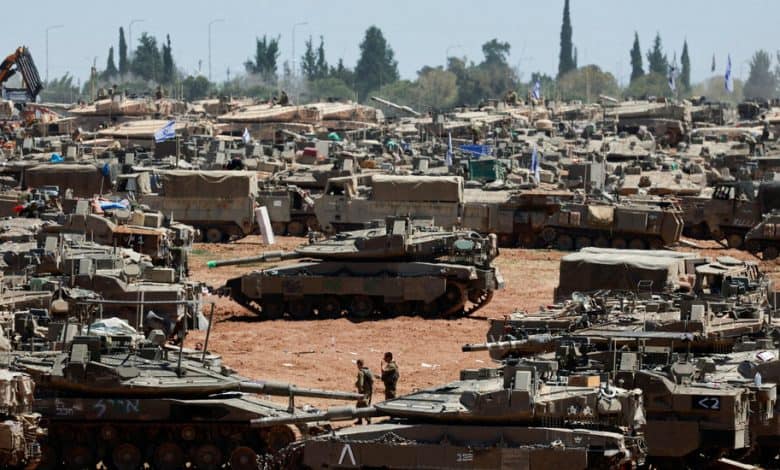Turning Point or Breaking Point? Biden’s Pause on Weapons Tests Ties to Israel

The message was not getting through. Not through the phone calls or the emissaries or the public statements or the joint committee meetings. And so, frustrated that he was being ignored, President Biden chose a more dramatic way of making himself clear to Israeli leaders. He stopped sending the bombs.
Mr. Biden’s decision to pause the delivery of 3,500 bombs to Israel was meant to convey a powerful signal that his patience has limits. While insisting that his support for the Jewish state remains “ironclad,” Mr. Biden opted for the first time since the Gaza war erupted last fall to use his power as Israel’s chief arms supplier to demonstrate his discontent.
The hold on the bombs represents a significant turning point in the 76-year-old relationship between the United States and Israel, historically one of the closest security partnerships in the world. But it may not necessarily be a breaking point. The Biden administration is still allowing other weapons to be sent to Israel, and in fact officials emphasized that no final decision has been made on the bombs that are currently in limbo. Mr. Biden hopes the pause will prompt Israel to change course.
“We’re going to continue to do what’s necessary to ensure that Israel has the means to defend itself,” Defense Secretary Lloyd J. Austin III told senators at a hearing on Wednesday as he became the first administration official to publicly confirm the weapons pause. “But that said, we are currently reviewing some near-term security assistance shipments in the context of unfolding events in Rafah.”
Israel’s plans to invade Rafah, the city in southern Gaza where more than one million Palestinians have taken refuge, have been a source of intense friction with the Biden administration for months. The Israelis maintain they need to go into Rafah to finish destroying Hamas while the Americans oppose an operation they fear would result in widespread civilian casualties.
The dispute has come to a head in recent days as Prime Minister Benjamin Netanyahu of Israel and his war cabinet appeared to be approaching a decision to proceed with the military assault on Rafah despite U.S. objections. Administration officials said they had begun reviewing arms last month that could be used in the operation and that Mr. Biden had signed off on the bomb hold last week.